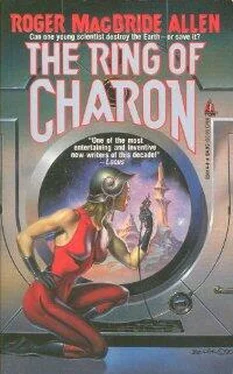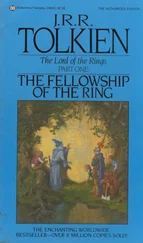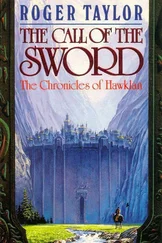Roger Allen - The Ring of Charon
Здесь есть возможность читать онлайн «Roger Allen - The Ring of Charon» весь текст электронной книги совершенно бесплатно (целиком полную версию без сокращений). В некоторых случаях можно слушать аудио, скачать через торрент в формате fb2 и присутствует краткое содержание. Год выпуска: 1990, ISBN: 1990, Издательство: Tor Books, Жанр: Фантастика и фэнтези, на английском языке. Описание произведения, (предисловие) а так же отзывы посетителей доступны на портале библиотеки ЛибКат.
- Название:The Ring of Charon
- Автор:
- Издательство:Tor Books
- Жанр:
- Год:1990
- ISBN:0-812-53014-4
- Рейтинг книги:5 / 5. Голосов: 1
-
Избранное:Добавить в избранное
- Отзывы:
-
Ваша оценка:
- 100
- 1
- 2
- 3
- 4
- 5
The Ring of Charon: краткое содержание, описание и аннотация
Предлагаем к чтению аннотацию, описание, краткое содержание или предисловие (зависит от того, что написал сам автор книги «The Ring of Charon»). Если вы не нашли необходимую информацию о книге — напишите в комментариях, мы постараемся отыскать её.
The Ring of Charon — читать онлайн бесплатно полную книгу (весь текст) целиком
Ниже представлен текст книги, разбитый по страницам. Система сохранения места последней прочитанной страницы, позволяет с удобством читать онлайн бесплатно книгу «The Ring of Charon», без необходимости каждый раз заново искать на чём Вы остановились. Поставьте закладку, и сможете в любой момент перейти на страницу, на которой закончили чтение.
Интервал:
Закладка:
But all that fastidious timing and positioning had been overturned when Earth was suddenly not there to hold the reins. In the careful dance of the orbits, it had been Earth that had called the tune—and now the caller was gone, leaving the dancers themselves to wheel and pitch about at random.
Lucian was trying to find out just how bad the situation was—a tricky job with a dead computer. He sat there, staring at the blank screen, trying to think.
He had gotten far enough along in the problem to confirm his original fear. Earth’s disappearance was no illusion. Working by hand, he had recalculated projected orbital trajectories for several of the larger habitats, factoring Earth’s disappearance into the existing projection as stored in the navigational almanac system. He had fed his coordinates to the radar controllers, and radar had reported dead-on tracks for every habitat.
And the message was simple: without the Earth to anchor them, the Earth orbiters were careering across the sky. The Moon-orbiting satellites were not in much better shape—Earth’s massive gravity well was a major variable in their orbits as well. Several satellites and habitats had already spiraled down to impacts on the Moon, including all of the satellites stationed at the Lagrangian balance points. Held in stationary orbit over the Lunar Nearside and Farside by the balance of terrestrial and Lunar gravity, some of the Lagrangian stations had drifted off into deep space, and others had simply fallen down, once Earth’s gravity was no longer there to hold them up.
Other facilities hadn’t crashed yet—but they would, their impact points as inevitable and irrevocable as gravity itself. They were falling now, and nothing could stop them. The few stationary facilities with powerful station-keeping engines might be able to save themselves. But most of the stations had no stationkeeping engines, or only small ones. There was no way to correct their courses, even if Lucian had been able to calculate their present courses in time.
All of the objects Lucian tracked were still held in orbit about the Sun, of course, but the speed and vector each held at the moment Earth vanished threw a random element into the mix. Some were moving into higher-inclination orbits, others in a bit closer to or out a bit further from the Sun.
But what frightened Lucian most of all was that it should have been worse. Many of the predicted disasters never happened. Radar couldn’t spot many of the threatened ships in the first place. According to the computer plots, there should have been far more impacts, more collisions, more spacecraft radioing in to report themselves off course. Satellites, habitats and spacecraft, lots of them, were simply missing .
Suddenly, with a flare of lights and a renewed hum of ventilation fans, the primary power system came back on. Lucian’s console flashed into life. He leaned into the keyboard and ran some quick checks. Yes, his programs were still intact. That much was a relief. But what about the missing satellites? Lucian ordered up a three-dee projection of the coordinates for the missing ships and stations, as of the moment before Earth disappeared.
The pattern in the three-dee tank was clear, obvious, and clean. It was not merely the Earth that was gone, but everything that had been within a certain volume of space surrounding Earth. Somehow, that made it seem real. It was easier to conceive of a space station ceasing to exist than a whole planet. It was suddenly real enough to be frightening.
The intercom bleeped and Lucian punched the answer button. It was Janie in Radar, paging him on the intercom. “Lucian, you got a second?”
Lucian looked over and spotted Janie on the far side of the big room, saw her looking not at him, but at her display system. It was disconcerting to speak to disembodied voices all day, when you could see the bodies they belonged to, out of earshot. Lucian adjusted his earpiece and spoke into his throat mike. “I’ve got just about that long, Janie. What’s up?”
“I’ll relay it to your screen. It’s kind of hard to explain. You had me do a radar track on Mendar-4, right?”
“Right,” Lucian said.
“Okay,” Janie’s voice said. “Here’s what’s what. This is what Mendar’s orbit was .” A standard orbital schematic appeared on Lucian’s flatscreen. Earth stood in the center of the screen, and Mendar-4’s track showed as a perfect white circle tracing around it. “Now this is an orbit based on the radar tracks we’ve gotten since the first quake.” The symbol for Earth vanished from the screen, and Mendar moved straight out on a tangent from its previous orbit. “I’m running it forward in blue to give us a projected orbit.”
Lucian watched as the straight blue line stretched out into Solar space.“Okay, so what?” Lucian asked.
“So here’s what happened after the second quake, just a few minutes ago. This is Mendar’s actual course, based on radar tracking. I’ll run it in yellow.” A third course appeared on the screen, peeling away from the straight blue line of the projected course.
“Holy Jesus Christ,” Lucian said.
He knew what it meant, even without analyzing the orbit. Mendar’s path was being bent back toward some large mass , a large mass right where Earth had been. A planet-sized mass.
“Has this happened to the other orbital tracks?” Lucian asked, his fingers busy running his own board. He could feel the relief washing over him. It had to be. Earth was back from whatever impossible place it had been. It had to be.
“Yes it has,” Janie said. “Similar orbit shifts, all starting just at the onset of the last quake.”
“It’s got to mean that Earth is back,” he said, excitedly. “That’s what caused the second quake series. Earth’s gravity field coming back and grabbing at the Moon.” He brought up the image from the surface camera, still trained on Earth’s coordinates.
But there was nothing there. Nothing at all. Just some debris.
“I checked that too, first thing, Lucian.” Janie’s voice was soft, apologetic. “There’s nothing there.”
“Give me a real-time radar image of where Earth should be,” Lucian said. Maybe it was simply cloaked somehow, some weird optical phenomenon. Janie redirected her radar and Lucian split his screen, watching the same swatch of sky in visual and radar frequencies.
“Nothing, Lucian,” Janie said. “Not one damn thing—”
Suddenly there was a blue-white flash of light in the center of the visual screen, and a smaller, dimmer flicker on the radar. And then, on radar, a target appeared. A big one, Lucian judged. Perhaps two kilometers across, and moving fast. About the size of the other debris chunks in the radar image. And all the debris was moving away from the new gravity source. Almost as if they had been launched themselves…
“You got a recording on this?” Lucian asked.
“Sure thing,” Janie said.
“Let me access that. Last fifteen minutes of it.” Lucian cut away from the live picture and ran the recording forward from the moment the quakes hit.
Another flash, and another target. And again, and again, and again. Some of them drove straight on. Others seemed to snap around in tight parabolas before speeding away. They had to be moving at a helluva clip for the motion to be visible at this range, even in fast forward. Larry ran a check, and discovered that the targets were popping out of the bluish flashes at regular intervals, once every 128 seconds.
The image reminded him of something, and it took a moment for it to register. Like lifeboats launching from a crippled ship , Lucian thought. For one wild moment he wondered if that was exactly what he was seeing—the populace of Earth somehow escaping from their wrecked planet.
Читать дальшеИнтервал:
Закладка:
Похожие книги на «The Ring of Charon»
Представляем Вашему вниманию похожие книги на «The Ring of Charon» списком для выбора. Мы отобрали схожую по названию и смыслу литературу в надежде предоставить читателям больше вариантов отыскать новые, интересные, ещё непрочитанные произведения.
Обсуждение, отзывы о книге «The Ring of Charon» и просто собственные мнения читателей. Оставьте ваши комментарии, напишите, что Вы думаете о произведении, его смысле или главных героях. Укажите что конкретно понравилось, а что нет, и почему Вы так считаете.












